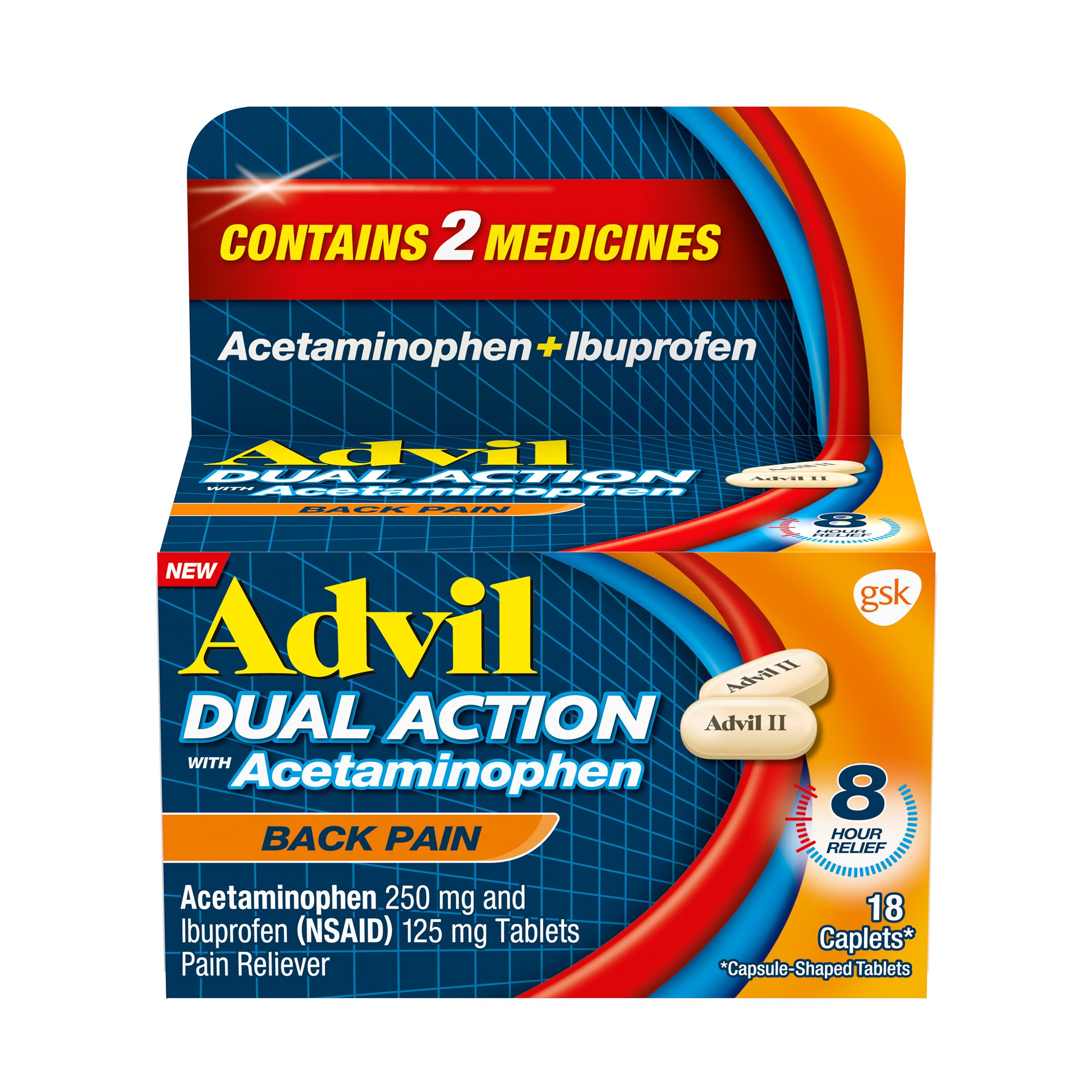Lexapro With Advil: A Comprehensive Guide To Combining These Popular Medications
Listen up, folks. If you're here wondering about Lexapro with Advil, you're not alone. Millions of people around the world are prescribed Lexapro for anxiety and depression, while Advil is a go-to solution for pain relief. But can you really mix these two? And what’s the deal with potential side effects? Let’s dive deep into this topic and answer all your burning questions.
Combining medications can feel like walking on a tightrope. You want relief from your symptoms, but you also need to be cautious about interactions. That’s why understanding how Lexapro with Advil works together is crucial. Whether you’re dealing with anxiety or a headache, this guide has got your back.
Before we dive into the nitty-gritty, let’s set the stage. Lexapro (escitalopram) is an antidepressant that belongs to the selective serotonin reuptake inhibitor (SSRI) family. Meanwhile, Advil (ibuprofen) is a nonsteroidal anti-inflammatory drug (NSAID) used to reduce pain, inflammation, and fever. Mixing them? Well, that’s where things get interesting—and potentially risky.
- Exploring Emine Meydan More Facebook History And Search Fails
- Luce Caponegro Movies Tv Shows Amp Her Untold Story
Understanding Lexapro and Its Role in Mental Health
Lexapro is no ordinary pill. It’s a powerful medication designed to help regulate serotonin levels in the brain. Serotonin is often referred to as the "happy chemical" because it contributes to mood stabilization. But here's the thing—Lexapro isn’t just for depression. It’s also prescribed for generalized anxiety disorder (GAD), panic disorder, and other mental health conditions.
When you start taking Lexapro, your body goes through a transition period. Some people experience side effects like nausea, insomnia, or dizziness at first. But hey, don’t panic! These usually subside as your body adjusts. The key takeaway? Always consult your doctor before making any changes to your medication regimen.
How Does Lexapro Work?
Alright, let’s break it down. Lexapro increases the availability of serotonin in the brain by preventing its reabsorption. This helps improve mood and reduce anxiety over time. But it’s not an overnight fix. It can take several weeks for the full effects to kick in, so patience is key.
- Discover Stunning Aerial View Of Vatican City A Visual Journey
- Discover Polynesian Culture Clothing Men Amp Traditions
- Lexapro is an SSRI, which means it affects serotonin levels.
- It’s commonly prescribed for depression, anxiety, and panic disorders.
- Side effects may include nausea, dizziness, and insomnia initially.
Advil: The Everyday Pain Reliever
Now, let’s talk about Advil. This trusty NSAID is a staple in many medicine cabinets. Whether it’s a tension headache, menstrual cramps, or arthritis pain, Advil has got you covered. But here’s the deal—Advil isn’t just about pain relief. It also reduces inflammation and lowers fever.
Advil works by inhibiting the production of prostaglandins, chemicals in the body that cause pain and inflammation. But like any medication, it comes with its own set of risks. Long-term use can lead to stomach issues, kidney damage, or even cardiovascular problems. So, yeah, moderation is important.
When Should You Use Advil?
Advil is best used for short-term relief of mild to moderate pain. Here are some common scenarios where Advil might come in handy:
- Tension headaches or migraines.
- Muscle aches and joint pain.
- Menstrual cramps.
- Arthritis symptoms.
Can You Take Lexapro with Advil?
This is the million-dollar question, right? Can you safely combine Lexapro with Advil? The short answer is yes—but with caution. Both medications are generally considered safe when taken together, but there are a few things to keep in mind.
First off, both Lexapro and Advil can increase the risk of bleeding. Lexapro affects platelet function, while Advil thins the blood. This means you might be more prone to bruising or bleeding if you take them together. If you’re already on blood thinners or have a history of bleeding disorders, talk to your doctor before combining these meds.
Potential Side Effects of Combining Lexapro and Advil
While most people tolerate this combination well, there are some potential side effects to watch out for:
- Increased risk of bleeding.
- Gastrointestinal issues like stomach pain or ulcers.
- Dizziness or lightheadedness.
- Headaches or migraines.
If you notice any of these symptoms, don’t hesitate to reach out to your healthcare provider. They can help adjust your dosage or suggest alternative treatments if needed.
Factors to Consider Before Mixing Lexapro and Advil
Not everyone is a good candidate for combining Lexapro with Advil. Here are a few factors to consider:
- Medical history: Do you have a history of gastrointestinal issues, bleeding disorders, or kidney problems? If so, proceed with caution.
- Other medications: Are you taking any other drugs that affect blood clotting or the stomach lining? Mixing these with Lexapro and Advil could increase risks.
- Age: Older adults may be more susceptible to side effects from NSAIDs like Advil.
Your doctor will evaluate your individual risk factors and help determine if this combination is safe for you.
Expert Insights on Lexapro and Advil
According to a study published in the Journal of Clinical Psychopharmacology, combining SSRIs like Lexapro with NSAIDs like Advil can increase the risk of gastrointestinal bleeding. However, the study also noted that this risk is relatively low when used intermittently and at recommended doses.
Dr. Sarah Johnson, a psychiatrist specializing in medication management, adds, “While Lexapro and Advil can be used together, it’s important to weigh the benefits against the risks. For most patients, occasional use of Advil while on Lexapro is safe, but long-term use should be closely monitored.”
What the Experts Say About Long-Term Use
Long-term use of Advil, especially in combination with Lexapro, requires extra vigilance. Dr. Johnson explains, “Chronic NSAID use can lead to kidney damage, stomach ulcers, and other complications. If a patient needs ongoing pain relief, we often explore alternative options like acetaminophen or physical therapy.”
So, if you find yourself reaching for Advil frequently, it might be worth discussing other treatment options with your doctor.
Alternatives to Advil When Taking Lexapro
If you’re concerned about the risks of combining Lexapro with Advil, there are alternatives worth considering. Acetaminophen (Tylenol) is a good option for pain relief without the bleeding risks associated with NSAIDs. However, it’s important to note that acetaminophen has its own set of risks, especially when taken in large doses.
Other alternatives include:
- Topical pain relievers like creams or gels.
- Heat therapy for muscle pain.
- Physical therapy for chronic conditions.
Ultimately, the best course of action depends on your specific needs and medical history. Your doctor can help you find the right solution for your situation.
Tips for Safely Combining Lexapro and Advil
If you decide to take Lexapro with Advil, here are a few tips to stay safe:
- Follow dosage guidelines: Stick to the recommended doses for both medications.
- Take with food: Taking Advil with food can help reduce stomach irritation.
- Monitor for side effects: Keep an eye out for signs of bleeding, stomach pain, or other adverse reactions.
- Consult your doctor: Always check with your healthcare provider before making any changes to your medication regimen.
By taking these precautions, you can minimize the risks and maximize the benefits of combining Lexapro with Advil.
Real-Life Experiences: What Patients Say
Curious about what others have experienced with Lexapro and Advil? Here’s what some patients have to say:
“I’ve been on Lexapro for years, and occasionally I take Advil for headaches. I haven’t had any issues, but I do make sure to take it with food to avoid stomach upset.” – Sarah, 34
“I was hesitant to combine these two, but my doctor assured me it was safe as long as I didn’t overdo it. I’ve been fine so far, but I always keep an eye out for any warning signs.” – John, 45
Real-life experiences like these can provide valuable insight, but remember—every person is different. What works for one person might not work for another.
Common Questions About Lexapro and Advil
Here are some frequently asked questions about combining these medications:
- Can I take Lexapro and Advil together daily? It depends on your individual risk factors. Talk to your doctor before making this a regular habit.
- What are the signs of gastrointestinal bleeding? Look for symptoms like black, tarry stools, vomit that looks like coffee grounds, or severe abdominal pain.
- Is there a safer alternative to Advil? Acetaminophen is often considered a safer option for short-term pain relief when taking Lexapro.
Final Thoughts: Is Lexapro with Advil Right for You?
In conclusion, combining Lexapro with Advil can be safe for most people when used responsibly. However, it’s important to weigh the benefits against the potential risks. Always consult your doctor before making any changes to your medication regimen, and don’t hesitate to reach out if you experience any concerning side effects.
So, what’s next? If you found this article helpful, why not share it with others who might benefit? And if you have any questions or experiences to share, drop them in the comments below. Let’s keep the conversation going!
Disclaimer: This article is for informational purposes only and should not replace professional medical advice. Always consult your healthcare provider before making any changes to your medication regimen.
Table of Contents
- Understanding Lexapro and Its Role in Mental Health
- Advil: The Everyday Pain Reliever
- Can You Take Lexapro with Advil?
- Factors to Consider Before Mixing Lexapro and Advil
- Expert Insights on Lexapro and Advil
- Alternatives to Advil When Taking Lexapro
- Tips for Safely Combining Lexapro and Advil
- Real-Life Experiences: What Patients Say
- Final Thoughts: Is Lexapro with Advil Right for You?
- Unfiltered Truth Nasty Images Reactions Whats Trending
- Carmelo Anthony Shoes History Models More Year

Advil Dual Action Acetaminophen and Ibuprofen Caplets


Advil LiquiGels Vacation Foods VacationFoods